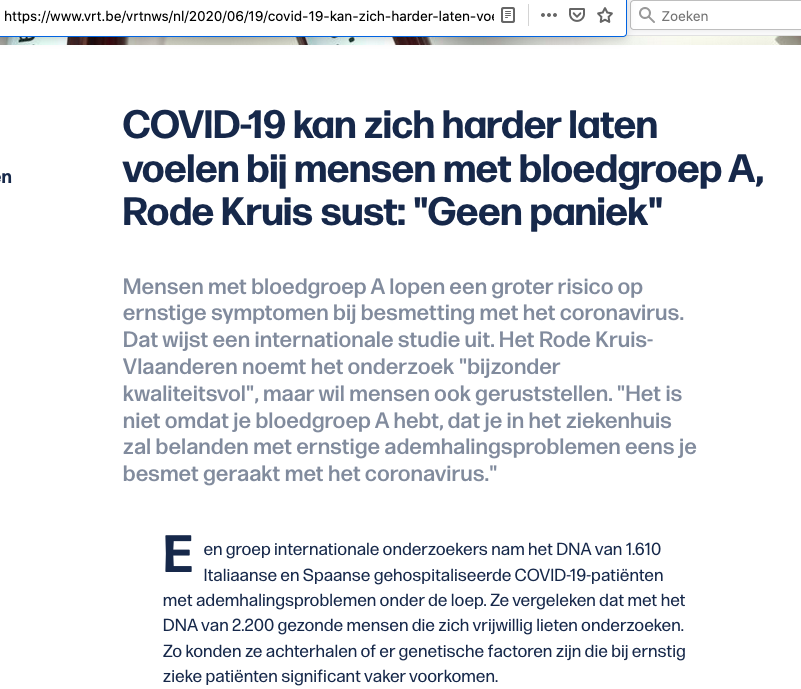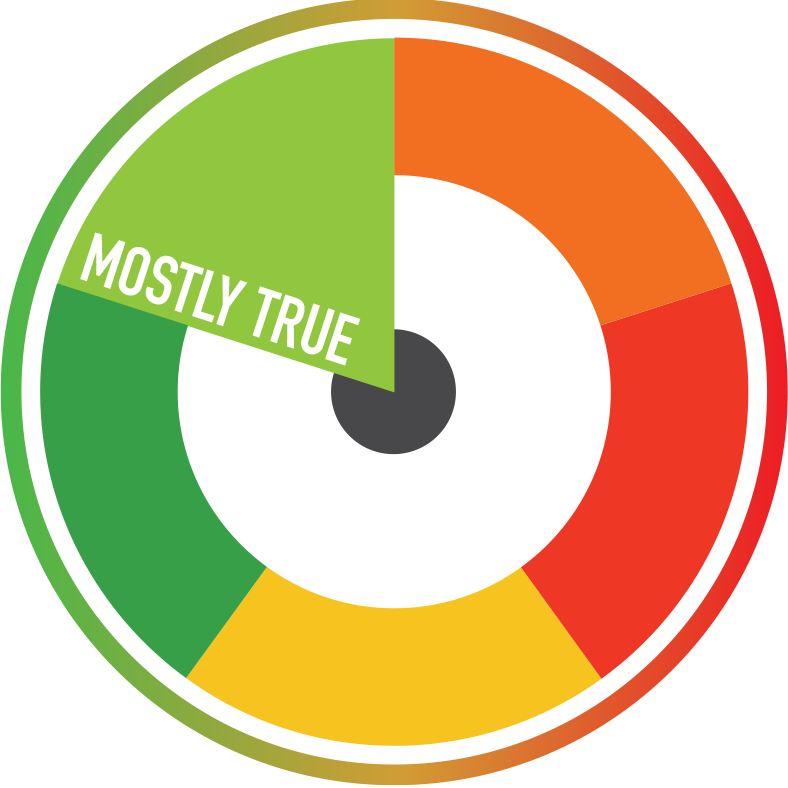In a headline on Friday 19 June 2020 Belgian public broadcaster VRT NWS wrote that COVID-19 may cause more severe symptoms to people with blood type A. According to the article, people with this blood group therefore run a higher risk of serious symptoms when infected with the coronavirus. This conclusion came from an international study. The Belgian Red Cross-Flanders calls the study “very high quality”. The claim turns out to be mostly true.
The DNA of 1 610 Italian and Spanish hospitalized COVID-19 patients with respiratory problems was compared to the DNA of 2200 healthy people by a group of international researchers led by German and Norwegian researchers. This is not the first study to show that individuals with blood type A have a higher risk of developing serious coronavirus symptoms. Chinese (here and here) and American (and here) studies came to the same conclusion. People with blood type A have a higher chance of a positive coronavirus test. Why blood type O protects better against Covid-19 is still unclear. Possibly it has to do with a coagulation factor, which people with this blood group have less of.

Other factors
However, it is not known yet how exactly the blood group could play a role in a SARS-CoV-2 (COVID-19) infection. Too few target groups have yet been studied and other factors must be taken into account. It may be a coincidence that more people with blood group A test positive for the coronavirus and show more severe symptoms.
Other factors that cause this may also be overlooked. Every culture is different, and so every culture has its own lifestyle. This lifestyle causes larger groups in the same society to create certain health changes in the body. The blood group not only plays a major role in the fact that more people test positive for the coronavirus, but other factors in the body are also important. These other factors include, for example, your weight, age, medication you take, chronic respiratory and pulmonary abnormalities, and so on.
So, your lifestyle as an individual is also very important and plays a major role (your diet, sports pattern, etc.). In addition, it is also about an observational examination, which cannot show a cause-effect relationship.
More research
“In order to know whether blood type A is really the cause of the increased risk of serious symptoms of corona, more research is needed”, says Nena Testelmans of the Flemish Red Cross. The examination should take into account all other important factors of the body that increase the risk of serious coronavirus symptoms. A person with blood type A who has chronic abnormalities of the respiratory tract and lungs as a result of smoking all his life is more likely to have corona because of his state of health and not just because of the fact that this person has blood type A.
Every important factor must therefore be taken into account. In addition, more people need to be examined. If more countries are examined, it is possible to take into account the possibility of reacting differently to the coronavirus. A conclusion can only be drawn when a more extensive and thorough investigation is done.
Conclusion
What is stated in the article is largely correct. In the research, people with blood type A were the largest target group that tested positive for the coronavirus or showed more severe symptoms due to the virus.
What can be discussed, however, is the fact that there is an immediate link between the chance of getting the coronavirus and a person’s blood type. It is not the intention to frighten people unnecessarily, because too little research has been done that really shows that the blood group plays a major role in the coronavirus.
It can therefore be concluded that more people with blood type A really showed more severe symptoms of the coronavirus, but a more thorough and extensive research is clearly needed to be able to make a connection between Covid-19 and the blood type.
RESEARCH | ARTICLE © Celine De Crock, Emma Schelfhout and Demi Verborgt, AP University College Antwerp, Belgium
Leave your comments, thoughts and suggestions in the box below. Take note: your response is moderated.





